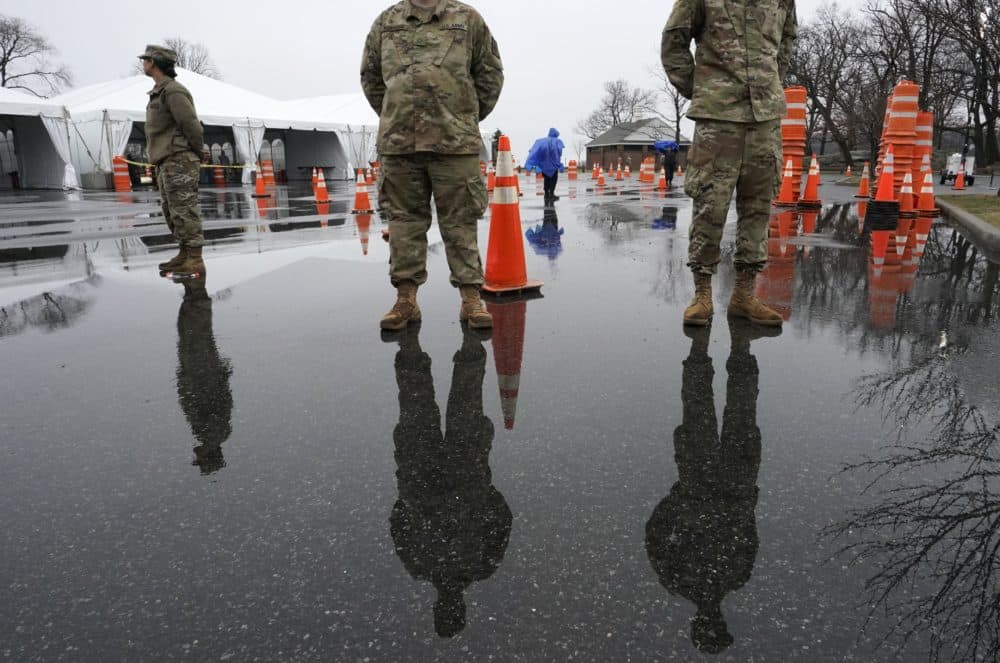Advertisement
How The U.S. Military Is Responding To The Coronavirus Crisis
Resume
The U.S. military is being deployed to provide additional resources and support as the country fights the coronavirus pandemic.
The military is focusing on keeping its troops healthy and safe overseas, while also mobilizing to help keep Americans safe at home.
At least 22 states have activated their state National Guard to help in their response to the spread of the virus across the country. The Navy is also preparing its two hospital ships to deploy along the coasts to reduce the strain on hospitals, Defense Secretary Mark Esper said in a news conference Tuesday.
“There is this law called the Posse Comitatus Act, which actually prevents federal troops from being used against citizens of the United States,” says Dr. Jonathan Woodson, former assistant secretary of defense for Health Affairs, who coordinated the military response to the Ebola outbreak in 2014.
That means the federal government has to be very careful about how it employs federal troops, he says. The military can be helpful on a larger scale by using its vast network to coordinate the movement of supplies, setting up field hospitals and temporary shelters and stepping in to fill gaps in health care if first responders fall ill.
The Army Corp of Engineers said on Tuesday that it has “begun assessing” how it could best respond to the coronavirus, including the construction of temporary facilities. But such construction projects could be complicated because they typically involve private contractors, Woodson says.
All of this requires that the military keep its troops healthy, too, Woodson says, which means stopping travel orders to prevent the spread of the virus, and quarantining those who have become infected or been in contact with a sick person.
“We can't defend the nation without people, and historically, disease and non-battle injury has been the major reason that soldiers, sailors, airmen and marines have been taken out of the fight,” he says. “So we focus on that very heavily to prevent troops from becoming infected and being a source of infection for the general population.”
In addition to helping first responders, military medical personnel could be called upon to run testing centers and to help deal with routine health issues that have nothing to do with the pandemic, Woodson says.
“You could mobilize perhaps a workforce that could support and free up other personnel to take care of sicker people or routine cases that normally come into the hospital because people will get appendicitis. People will get injured,” he says. “Patients shouldn't suffer during the crisis. You have to free up those personnel.
Francesca Paris produced and edited this interview for broadcast with Peter O'Dowd. Samantha Raphelson adapted it for the web.
This segment aired on March 18, 2020.

